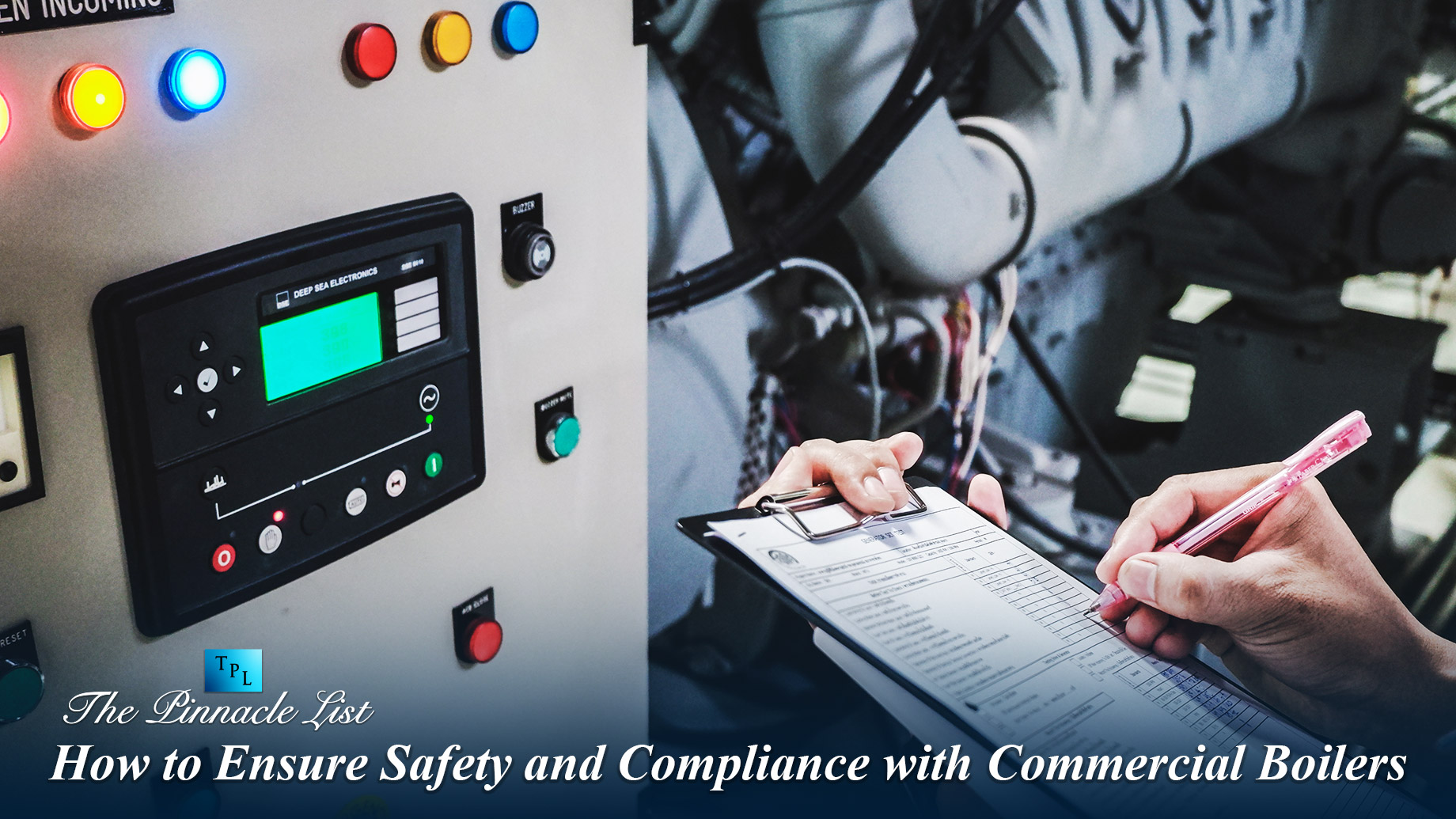
Businesses that utilize boilers must prioritize safety above all else. It is imperative to ensure these systems function correctly and comply with regulations to prevent accidents and uphold efficiency. In this article, we will delve into measures that businesses can implement to guarantee the safety and compliance of their boilers. By adhering to these recommendations, companies can safeguard their workforce and avoid legal entanglements.
Routine Maintenance and Inspections
Consistent maintenance is not just a task, it’s a shield that protects your commercial boilers. It is crucial to have a structured maintenance schedule and inspections conducted by qualified experts. These inspections should examine burners, heat exchangers, pressure relief valves, and safety mechanisms, ensuring that your operations are secure and efficient.
Ventilation
Adequate ventilation is not just a requirement, it’s a cornerstone of safety in boiler operations. It is essential for dissipating gases like carbon monoxide (CO) or sulfur dioxide (SO₂) produced during boiler operations. Inadequate ventilation can accumulate these gases, posing serious health hazards for employees. Prioritizing ventilation is vital to upholding safety standards.
Water Quality
The quality of water is not to be underestimated in its impact on boiler operations. It significantly impacts the durability and efficiency of boilers. Poor water quality can result in scaling or corrosion in the system, leading to decreased efficiency and potential safety risks. It’s crucial to regularly test water parameters like pH levels, dissolved solids, hardness, and alkalinity to ensure the boiler functions at its best.
Training and Education
Employee training is not just a formality, it’s a preparation for the unexpected. It is essential for those working with boilers. They must be well-versed in operating procedures, recognize equipment issues and leaks, and respond effectively during emergencies. This training empowers your team to handle any situation with confidence.
Compliance with Regulations and Codes
Compliance with regulations and codes is critical to boiler operations. Understanding state requirements for installation, operation, maintenance, and record-keeping is vital. Familiarity with industry standards is essential for maintaining safety.
Emergency Response Plan
An emergency response plan tailored to boiler incidents is crucial. It should detail procedures for handling leaks, fires, or malfunctions. Employees must undergo training to understand their roles in implementing the emergency response plan, enabling them to react efficiently during emergencies.
Documentation
Keeping records of maintenance activities, inspection findings, employee training sessions, and any repairs or upgrades performed on boilers is essential for compliance. These records demonstrate adherence to operational practices and reflect a commitment to fostering safety within the organization.
Pressure and Temperature Monitoring
Monitoring and regulating boiler pressure and temperature levels are critical for safe operation. Excessive pressure or high temperatures can result in incidents like boiler explosions. Installing a monitoring system that routinely checks these parameters and alerts operators promptly about any irregularities can help prevent accidents and ensure adherence to safety protocols.
Regular Training on Boiler Shutdown Procedures
Employees must receive training on shutdown procedures as a component of boiler safety measures. A systematic shutdown process guarantees that heat or pressure will be released from the boiler before any maintenance or repair work commences. Failure to follow the correct shutdown protocols can lead to injuries, equipment damage, or the potential release of substances.
Ensure to Follow the Manufacturer’s Guidelines
When it comes to boilers, it’s important to adhere to the manufacturer’s recommendations for installation, operation, and maintenance. Familiarizing yourself with these guidelines is crucial for the boiler’s effective operation. Neglecting these instructions could lead to equipment malfunctions, increased safety hazards, a reduced boiler lifespan, and difficulties meeting requirements.
Regular Audits and External Inspections
Apart from internal inspections by qualified professionals, conducting regular external audits or inspections by independent third-party organizations is also essential. These audits or inspections objectively evaluate a business’s boiler safety and compliance practices. They can help identify potential gaps or improvement areas to ensure ongoing adherence to regulations and standards.
End Note
Maintaining safety and compliance with boilers involves an approach that includes regular maintenance inspections, compliance with regulations and standards, proper employee training, and an effective emergency response strategy. Businesses must recognize that investing in safety measures not only protects their workforce but also shields them from potential legal ramifications due to accidents or non-compliance issues. Developing boiler management programs is recommended for businesses seeking to uphold safety standards.